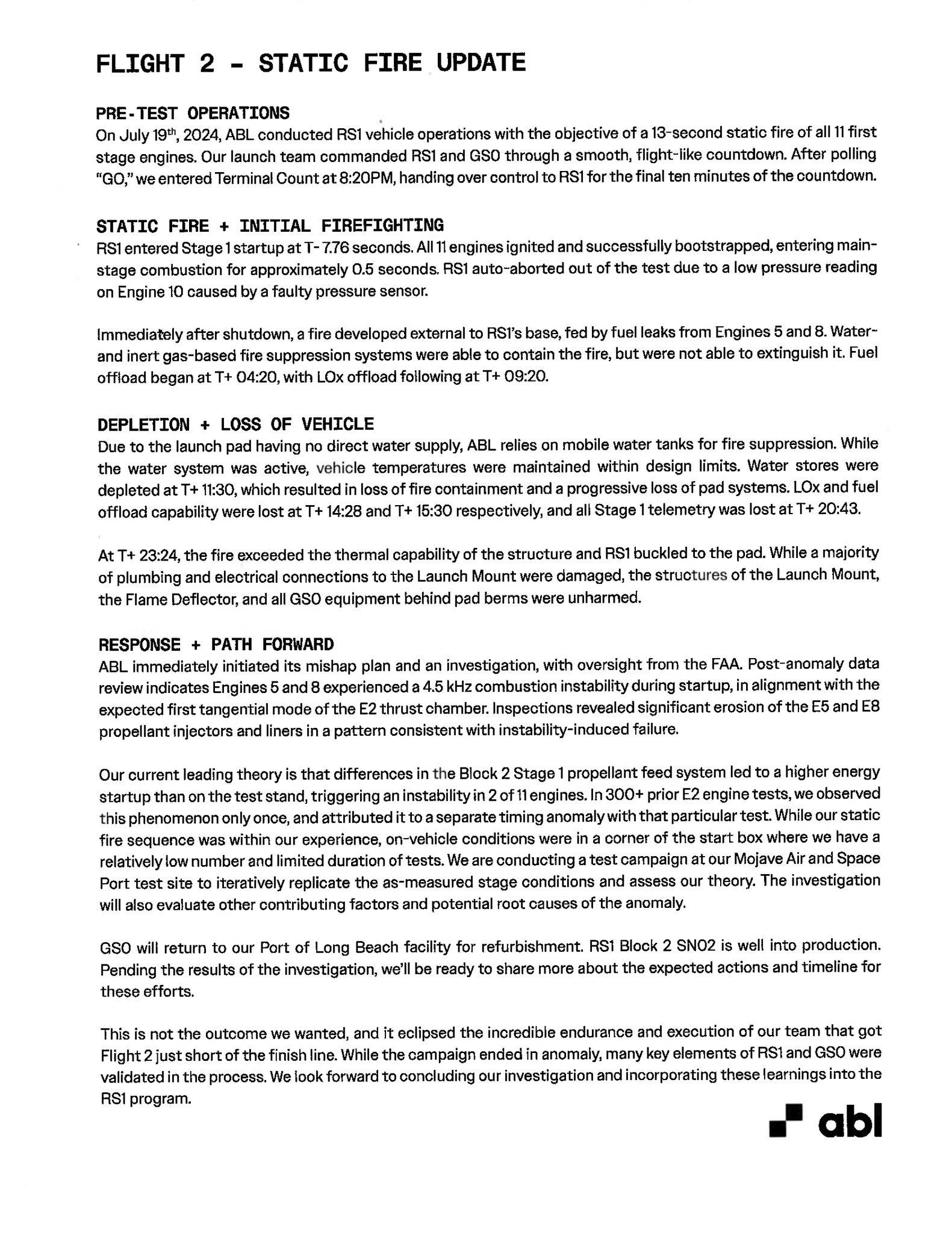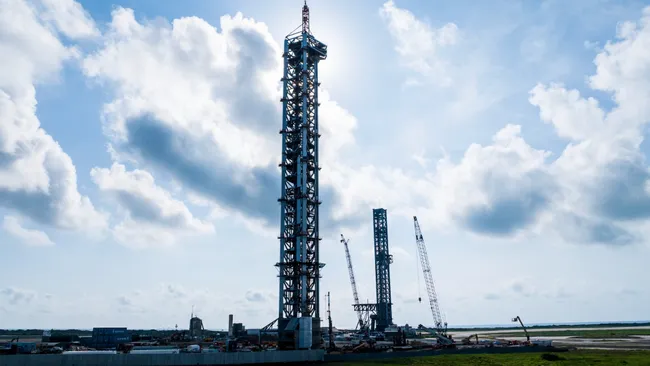Maybe they use the ponies as rocketry consultants.
The bit about Doug in particular was fairly shocking. Doug Hurley is an experienced astronaut, and one thing about spacecraft is that because of the low production volumes, they’re more like experimental aircraft than production aircraft or cars. The astronauts expect to spend a great deal of time understanding the craft and gaining confidence in it before they fly. From the stories I’ve read about SpaceX, from both NASA astronauts and private parties, that’s exactly how it works for them. They spend months around the craft and the people that built it. For Doug to come away from this experience at Boeing and deciding that he wouldn’t fly in Starliner is fairly damning.
The sad irony is that Boeing was still crucial. The Commercial Crew program could not have happened unless Boeing was one of the winners. When you send billions to SpaceX, it goes to California, Texas, and Florida. When you send money to Boeing, they spread the wealth much more evenly (37 states according to their website). That’s the only way to win Congressional support.
As politicized as NASA is, we should be thankful that they have a few people doing the right thing. SpaceX does have some capable friends in key positions. And, I suspect, a few more friends after recent events.
There’s a little cynical part of me that thinks: maybe NASA administrators are taking this as an opportunity to discredit Boeing as much as possible, so that they have maximum leverage against them in the future. It’s not that Boeing didn’t screw up–they did, badly, but perhaps NASA decided to interpret certain safety factors just a tiny bit more pessimistically than they might have otherwise done, and that pushed it over the line. Now, whenever Congress is trying to push for yet another Boeing contract of whatever kind, NASA can point out that Boeing screwed up so badly that they put the safety of NASA’s own astronauts on the line, and had to be rescued by their arch rival. No one can ever again claim that Boeing is the gold standard.
NASA will have this as ammunition against Congress for many years. Maybe we can see some programs that don’t include any of these bloated oldspace companies. I don’t want everything to be in the hands of SpaceX, of course, but there are plenty of other newspace companies out there that are hungry for contracts. SpaceX can now be the “old reliable” and NASA can take a few risks with the new guys.
ABL Space Systems released a preliminary report on their 19 Jul rest firing that resulted in, well, a lot of fire. Click on it, becomes bigger.

In breaking news, it turns out space is REALLY hard.
Unbelievable:
The mobile launch tower–for a garbage heap of a rocket that hasn’t been built yet–was bid at <$400M and is now projected to cost $2.7B. For a stupid tower.
As all this was happening, SpaceX finished a second launch tower at their Texas site in a matter of months:

It’s unknown how much it cost, but it could not have been more than a few hundred million. SpaceX just doesn’t have that much cash to burn. Besides, it’s clearly an efficient modular design that they can mass produce and stack up like Legos. There’s another down in Florida and they’ll have two there eventually (four total).
Attentive readers will note that the mobile launch tower is more sophisticated than the SpaceX equivalents. It’s mobile, for one. It has to be built more robustly since SLS is heavier when being moved due to the solid rocket motors. It has fueling systems for hydrogen, which is trickier than methane. Etc. (on the other hand, their tower won’t catch the rocket on landing, and has no facilities for stacking the rocket on the pad).
But that’s just the point. Bechtel has zero reason to push back on requirements and suggest something simpler. And they couldn’t anyway because the design is constrained by Congress, which would only have approved a rocket where the kickbacks went to the right place.
SpaceX on the other hand had infinite design freedom from the start and could design a whole system–rocket, pad, tower, and so on–for maximum cost effectiveness.
Still, the level of incompetence and contempt from Bechtel is unbelievable. Why are so many big contractors just absolutely inept? What a waste. The executives should be in prison for mismanagement at this scale. It’s essentially fraud.
Early on Wednesday morning, at 3:48 am ET local time, a Falcon 9 rocket booster making its 23rd launch took off from Space Launch Complex-40 at Cape Canaveral, Florida.
The mission successfully delivered 21 Starlink satellites, including 13 of the larger vehicles with direct-to-cell capabilities, before attempting a landing on the A Shortfall of Gravitas. However, the experienced booster had a shortfall of stability and tipped over shortly following touchdown.
Prior to Wednesday’s landing failure, SpaceX had landed 267 boosters in a row. The company’s last failure occurred in February 2021. The cause of the failure was not immediately clear, and SpaceX said “teams are assessing the booster’s flight data and status.” Based on video of the landing, it is possible there was an engine burn timing issue.
22 reuses for that one booster was pretty good. Especially since the record for orbital-class booster reuses for everyone else is… (checks notes) zero. That’s about half a billion bucks in savings if the boosters cost ~$25M.
Can’t tell yet if a hard landing cause a landing leg failure or a landing leg failure caused a hard landing. There was some residual velocity at touchdown. I’m sure we’ll find out soon.
Perhaps A Shortfall of Gravitas, but a surfeit of gravity. As always.
Minus any expenses related to reuse of course. Still, a bucket 'o dough.
And the FAA has grounded Falcon 9 for a “public safety” issue for something that happened 250 miles out at sea and not near any people…
Eric Berger thinks it’s no big deal:
I assume the reasoning is that the SpaceX report can just be a quick “The landing leg failed on touchdown. Since these are not used for launch, they can’t affect public safety. Landing is only at sea or on special landing pads that are already at a safe distance from people.” Ideally, the FAA could rubber-stamp this kind of thing and get them back running quickly.
It wasn’t airborne at the time and it was outside the United States border. I mean really, before Space X virtually EVERY NASA Rocket booster ended up on the ocean floor.
Another source is hearing that it’s not engine or leg related:
Radar altimeter failure, maybe? Also not needed for launch and can’t affect public safety.
The cynic in me wants to know if it was an ex Boeing employee working for the FAA.
They are bumping commander Zena Cardman and mission specialist Stephanie Wilson.
That’s necessary, since the Starliner is going home empty. Theoretically under automatic control for a completely safe automated return, but who knows if the various issues won’t torpedo anything other than an uncontrolled re-entry?
Was this thing built on the remains of an Indian burial ground?
… with locally sourced raw materials
![]()
What they need to do about that sound is one of the two things I do when my car is making a weird noise. One is to turn the stereo way up. The second is to take it to the dealer because it never makes the noise there.